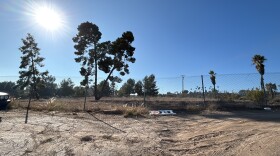RENEE MONTAGNE, host:
This week has brought another sign that it's getting more dangerous than ever in Afghanistan. On Wednesday, militants ambushed a Land Cruiser, clearly marked with the name of an aid agency, the International Rescue Committee.
They opened fire and killed three Western women who worked for the group, and an Afghan driver. The International Rescue Committee, or IRC, has managed to provide help to Afghans through many years of war - including shelter and water for refugees returning to the country. Michael Kocher is the groups vice president for international programs, and he spoke to us from New York.
Mr. MICHAEL KOCHER (Vice President of International Programs, International Rescue Committee): Good morning.
MONTAGNE: Now a Taliban spokesman has claimed responsibility for the attack. This part of Afghanistan, this province - and it's just right up to Kabul - is not considered especially dangerous. This is not a hotbed of the Taliban.
Mr. KOCHER: Well that's correct. This attack took place on a well-traveled road, in a village where we've gone through and other agencies go through often, in Logar Province. It's about an hour south of Kabul.
Our colleagues were returning from Gardez Province, where they were visiting and assisting community-based schools.
MONTAGNE: What do you imagine, from your knowledge of the area, why this car, filled with Western women and then the driver, was targeted? Are they trying to target aid agencies?
Mr. KOCHER: Well, surely we've seen over the last six months, the specific targeting of civilian, humanitarian, unarmed, non-political, impartial aid workers in Afghanistan, and then this tragically represents a new level of that.
MONTAGNE: And you're backed up in that by a report by a group called ANSO that tracks the security situation for non-profit groups in Afghanistan, and it is reporting that this year, 2008, is already the deadliest year yet for aid workers. Not just attacks, but kidnappings have doubled since the last year. Do you know what accounts for this increase?
Mr. KOCHER: I think there are a myriad of reasons for that. I think there remains an inadequate number of peacekeepers in Afghanistan. It's a large country. I think the training of Afghan police and military is still very much in progress. There are areas of increasing lawlessness, a porous border with Pakistan, and there's been a blurring of lines, I think, between civilian, humanitarian assistance and military aid.
MONTAGNE: And bottom line being it is just far more dangerous for aid workers there.
Mr. KOCHER: It is far more dangerous. You know, IRC works in war zones all over the world. We have extremely rigorous security procedures at all times.
In Afghanistan, we schedule travel 48 hours in advance. We travel in daylight hours only, in convoys, in clearly marked humanitarian vehicles. We're transparent in what we do. We have extensive security protocols, communications equipment.
We've been in Afghanistan since 1988, and our local knowledge is deep, and we have very good community relations information, and we rely heavily on local communities for our security.
MONTAGNE: Having suspended your operations indefinitely in the light of this tragedy, if aid agencies such as yours can't work in Afghanistan because the danger is so great, what will be the practical effect for people there?
Mr. KOCHER: I think the long-term practical effects would be very dire, indeed. It's got to be said that the overwhelming majority of the Afghanistan population highly values humanitarian assistance. They want schools for their children. They want clean water.
If IRC, or the humanitarian community more broadly, has to slow down or pull out of Afghanistan because of increasing attacks against us, the effects will be sorely felt by the Afghan communities.
I can't say specifically what it's going to take to bring us back. We did not suspend operations indefinitely carelessly. We did it with a heavy heart. We understand the ramifications, but our staff's security requires it and, obviously, the shared sense of grief and loss among all of our colleagues for these brave young people.
MONTAGNE: Thank you very much for talking with us.
Mr. KOCHER: Thank you.
MONTAGNE: Michael Kocher is vice president of international programs at the International Rescue Committee. Transcript provided by NPR, Copyright NPR.





